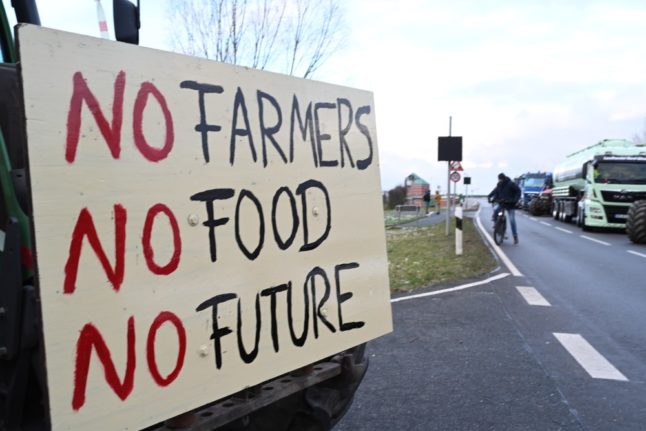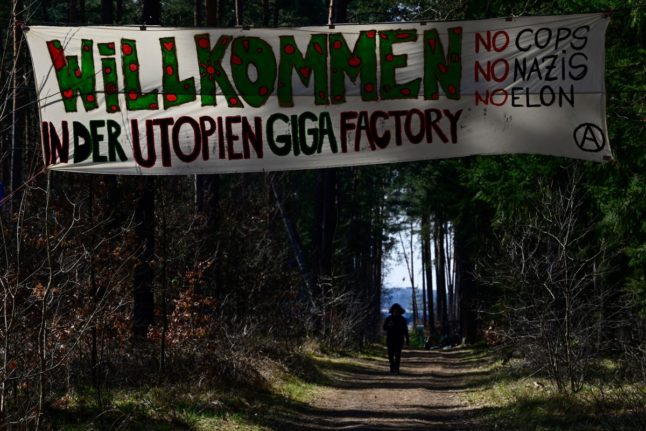Compared to Monday, when at least 2,000 tractors descended upon Berlin, Hamburg, Cologne and Bremen, Tuesday’s protests were not as big or as widespread.
According to BILD, there were no major traffic blockades expected on Tuesday. But that could change again if the protest stretches on through the week.
Smaller gatherings, such as vigils and rallies were planned throughout Germany, including a tugboat rally in Bed Hersfeld in Hesse, and another north of Berlin’s ring in the Oberhavel district.
Tens of thousands of tractors on the roads
In total, at least 100,000 farmers are estimated to be participating in the ongoing protests, which come in response to the coalition government’s plan to phase out certain agricultural subsidies.
According to official estimates, 24,000 tractors were on the road in Bavaria on Monday, along with nearly 20,000 North Rhine-Westphalia and another 25,000 in Baden-Württemberg. The movement of all these tractors caused traffic disruptions in some areas, including blocked border crossings to France and the Czech Republic.
READ ALSO: ‘We don’t get enough money’: Furious farmers stage Germany-wide tractor blockades
Manure piled in front of offices
School closures were also reported in Thuringia, Lower Saxony and Saxony. Also in Thuringia, in the town of Suhl, protesters reportedly unloaded several heaps of animal dung in front of the offices of members of Parliament from the SPD, the Greens, the FDP and the Left Party.
Munich experienced traffic disruption on Monday as thousands protesters and tractors gathered at Odeonsplatz.
But on Tuesday residents in Munich were expecting relative normality given the protest had ended.
The protests could have some direct impacts on supermarkets and grocery shoppers after farmers reportedly paralysed a grocery logistics hub in Großbeeren, Brandenburg.
As a result the Berlin-Brandenburg trade association said that 200 supermarkets could not receive deliveries on Tuesday.
Promoting an anti-government sentiment
There have been some concerns about the farmers’ protests being fuelled or infiltrated by the far-right. According to local media, many vehicles participating in the demos have featured the logo of the Alternative for Germany (AfD) party, or other alt-right symbols similar to those previously seen at anti-vaccine or anti-migrant protests.
After being confronted while trying to board a ferry with his wife last week, Vice-Chancellor Robert Habeck warned that some of the protestors were spreading “coup fantasies.”
For his part, German Farmers’ Association (DBV) President Joachim Rukwied said: “I see no danger at all of our association being infiltrated [by the far right].”
The protests began primarily in response to Berlin announcing the end of tax breaks for the purchase of farming and forestry equipment (including tractors and heavy machinery), as well as agricultural diesel fuel subsidies.
The so-called traffic light coalition government has since backtracked on some of the initial subsidy cuts in an effort to appease protestors – agreeing to leave the tax breaks and pause the subsidy phase out until 2026. But the protestors said these concessions were not enough.
Habeck says that it’s not the government but big agriculture that small farmers should aim their protests at. He suggests massive supermarket chains and industrial food companies were primarily to blame for the low prices that farmers receive.



 Please whitelist us to continue reading.
Please whitelist us to continue reading.
Member comments